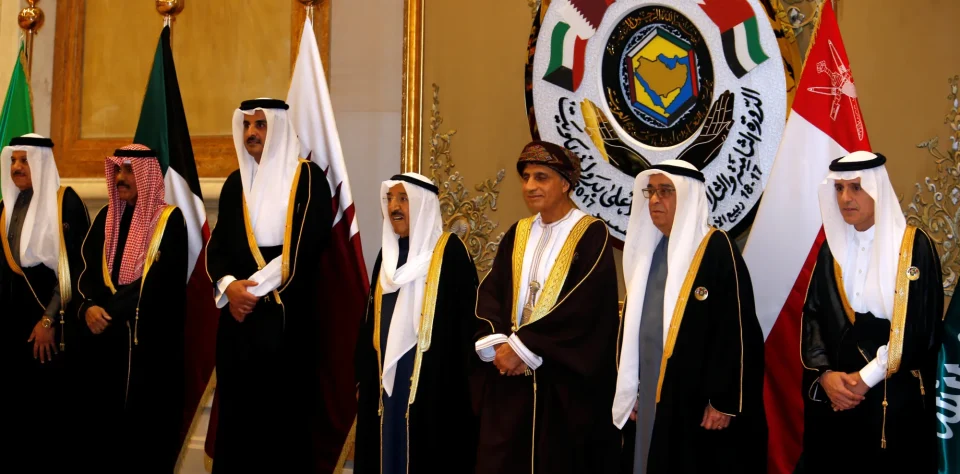Tarik Yousef—Director, Brookings Doha Center: One year into the Gulf Cooperation Council (GCC) crisis, the accumulated impact of the rift within the Arab world’s historically most predictable and stable grouping is a massive loss in collective international standing, geopolitical influence, and economic weight. The long-term damage to the GCC’s economic and financial integration project cannot be overemphasized. Considerable harm has also been inflicted on the bloc’s biggest asset: its social bonds and cultural fabric.
The Arab regional order has experienced growing strains in the past decade, and its collapse now appears complete with the breakdown of the GCC. Future integration projects must await the end of regional conflict and internal strife, which will give rise to the gradual emergence of a new regional architecture. Unlike the past, the new security arrangements will need to accommodate heightened concerns over political sovereignty and economic independence by member states, as well as the expanded presence, influence, and ambition of non-Arab powers in the Middle East.
Nader Kabbani—Director of Research, Brookings Doha Center; Senior Fellow, Global Economy and Development: One year ago, the United Arab Emirates(UAE), Saudi Arabia, Bahrain, and Egypt surprised the world by cutting off diplomatic and economic relations with their neighbor Qatar. The main issue was Qatar’s independent foreign policy, which was increasingly at odds with that of its neighbors. The quick and decisive action was a gambit aimed at forcing Qatari capitulation. The gambit did not go as expected. Qatar to date has been able to successfully weather the boycott, both politically and economically. It also wisely refrained from escalating the conflict and has taken steps to address many of the concerns raised against it.
One year on, there is little to be gained in continuing the boycott and much to lose. Saudi Arabia is in the middle of a challenging social and economic transformation; Dubai is preparing to host the World Expo in 2020; and Bahrain is working hard to stave off a financial crisis. A civil war rages on in Yemen, and Iranian influence in the region continues to expand. There is far more that unites the Gulf states than separates them. They need to end the conflict and work together to overcome the challenges they all face.
Noha Aboueldahab—Visiting Fellow, Brookings Doha Center: One year on, it has become clear that the blockade of Qatar is part of a much larger puzzle: a Saudi and UAE-led re-designing of the geopolitical landscape in the region, supported by the United States. The Saudi-Iranian rivalry certainly represents a significant driver of tensions in the Gulf. However, other factors must also be taken into account if we are to understand the broader implications of the GCC crisis.
In the last few years, several Gulf states, Turkey, and China have expanded their political and military influence in the Middle East, the Horn of Africa, and beyond. This expansion has intensified since the blockade and points to a battle for power and control through neo-colonial tools, wielded by actors within the region and outside it. Meanwhile, a divided Gulf has meant worsened prospects for regional security. But worst of all, it means that a resolution to the war in Yemen, which has produced the world’s worst humanitarian crisis, continues to be elusive.
Larbi Sadiki—Nonresident Fellow, Brookings Doha Center: Since ancient times, the history of statecraft has been littered with blockades. Blockades are not wild fruits of irrational actors; they belong to a realist calculus of power, whereby cunning statesmen and political artisans seek to subdue their opponents. They have one key significance: war by other means.
Contemporary blockades, with their varying degrees of severity, have demanded legally and morally binding and enforceable rules of engagement. This provided much room for exuberant political imagination to widen the scope of a nation’s responsibility to protect its civilians and cities. Such monitoring is one instrumentality available to the international system to fend off a central notion of high power politics. Lest we forget, the Arab world has long felt the devastation wrought by the “strong.” The 1990-2003 blockade against Iraq ravaged civilians. The ongoing siege of Gaza, now ten years old, blights the lives of two million human beings. The Qatar blockade that begun a year ago leaves much to be desired with respect to its propriety, and unanswered questions as to its ends. But so far Qatar has been fortunate enough to be able to invest skill and money in absorbing the shocks, more or less reducing the situation to a blockade in name only.
Ranj Alaaldin—Visiting Fellow, Brookings Doha Center: The Gulf Crisis shows no sign of being resolved anytime soon. Ongoing U.S. indifference and acquiescence to the Quartet’s blockade risks making this crisis the new normal. This does not bode well for

